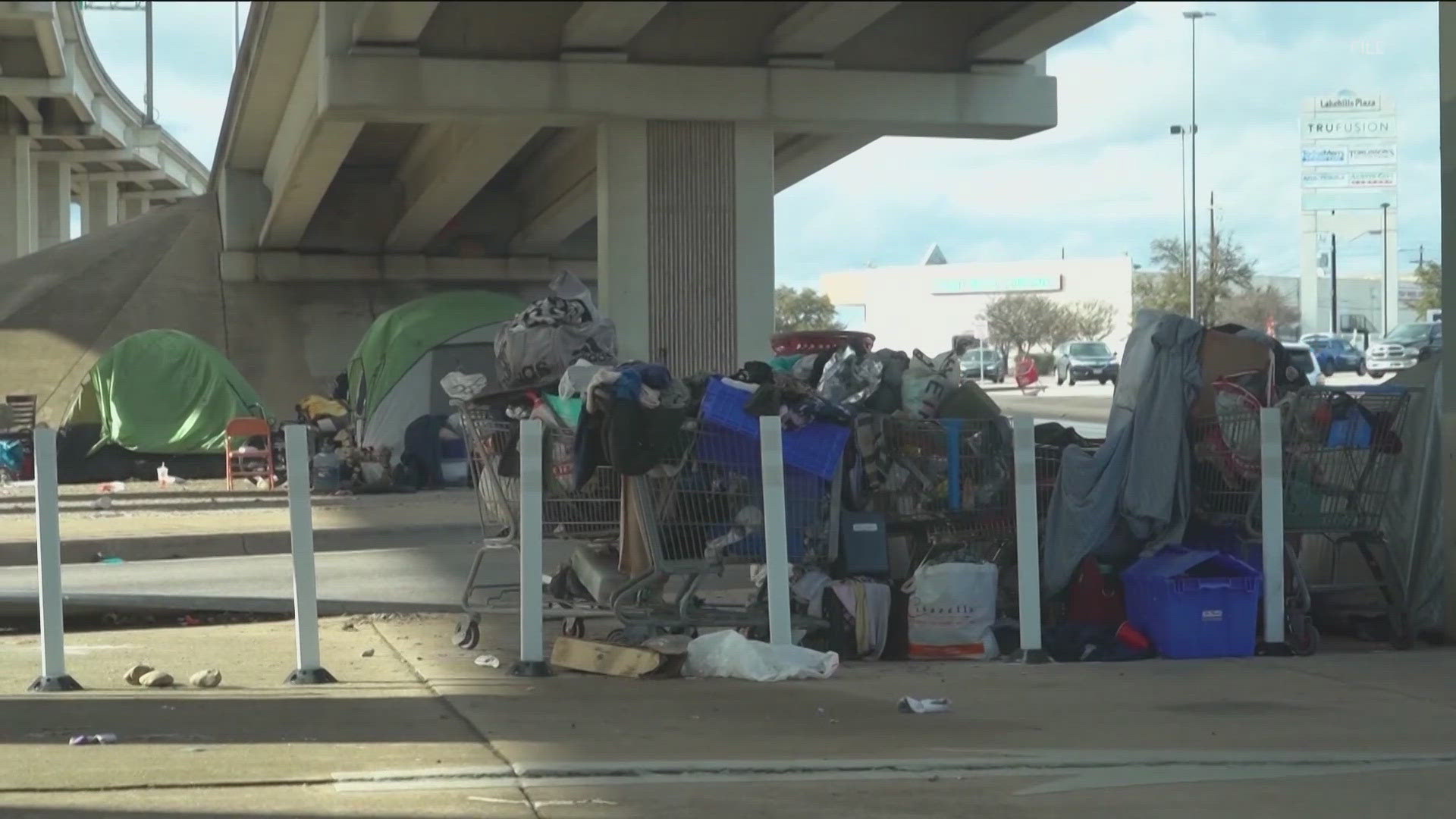AUSTIN, Texas — Resources and space for people experiencing homelessness in Austin are limited. And with federal funds that have assisted the city in providing rapid rehousing set to run out, leaders are looking for ways to keep people off the street.
A resolution passed by council members on May 30 creates a path to improve Permanent Supporting Housing, better assess wait lists and partner with outreach groups that will help meet the need.
Ahead of the vote, many addressed the council, signaling that while American Rescue Plan Act (ARPA) programs may be "imperfect," they are crucial.
For some time, the city has relied on funds through ARPA, which has been able to create 13 rapid rehousing programs that have served more than 2,000 people experiencing homelessness, according to Austin's Homeless Strategy Office.
The strategy office met with the Housing and Planning Committee and the Public Health Committee on May 24 to lay out plans on how these "one-time funds" will continue to serve those in need, while also outlining plans for future needs once the funds are gone.
According to a spokesperson with the Homeless Strategy Office, they have started to slow the funding but will ensure support in the programs doesn't suffer in the process as the APRA funds are set to expire 2026.
Below is a list of what the office is focused on:
- Ceasing new referrals to ARPA funded RRH programs after December 2024
- Extending ARPA RRH contracts up to December 2026 (as needed)
- Conducting mid-year spending reviews with vendors to establish clear enrollment targets for the remainder of 2024
- Working with community partners, including the diversion program for which Homeless Strategy Office has recently solicited vendors, to mitigate extenuating needs and to resolve housing crises quickly
"The ultimate goal here is to ensure nobody gets returned to the streets. When possible, we're going to move people into permanent housing or housing opportunity," Homeless Strategy Officer David Gray said during a separate joint meeting on June 5.
The office spokesperson also noted that Gray will be working to find new city funding in the upcoming budget.
"The Homeless Strategy Office is working closely with Ending Community Homelessness Coalition (ECHO) to develop a system model that may guide future investments into the homelessness response system. This will be instrumental in future planning and budgeting discussions," the spokesperson said.
Despite this, advocates stress that this move should have been addressed long ago.
Nicholas Strotcher is the iInterim program director for Front Steps, a nonprofit organization that helps people experiencing homelessness. He explained even with these rapid rehousing programs, the overall demand for housing is still high.
"There's some kind of disconnect because the waitlists are getting longer, even though we're housing more people than ever," Strotcher said.
Strotcher and Executive Director Sheila Joseph explained that it was a battle that they will keep fighting, but mentioned more funds and resources need to be provided in order to make that happen.
"There's still crisis. There will be crisis for a while," Joseph said. "I went into this business hoping to eradicate it, but more and more people are coming to this city, which is very expensive. And so, more and more people are losing their homes in this city."

